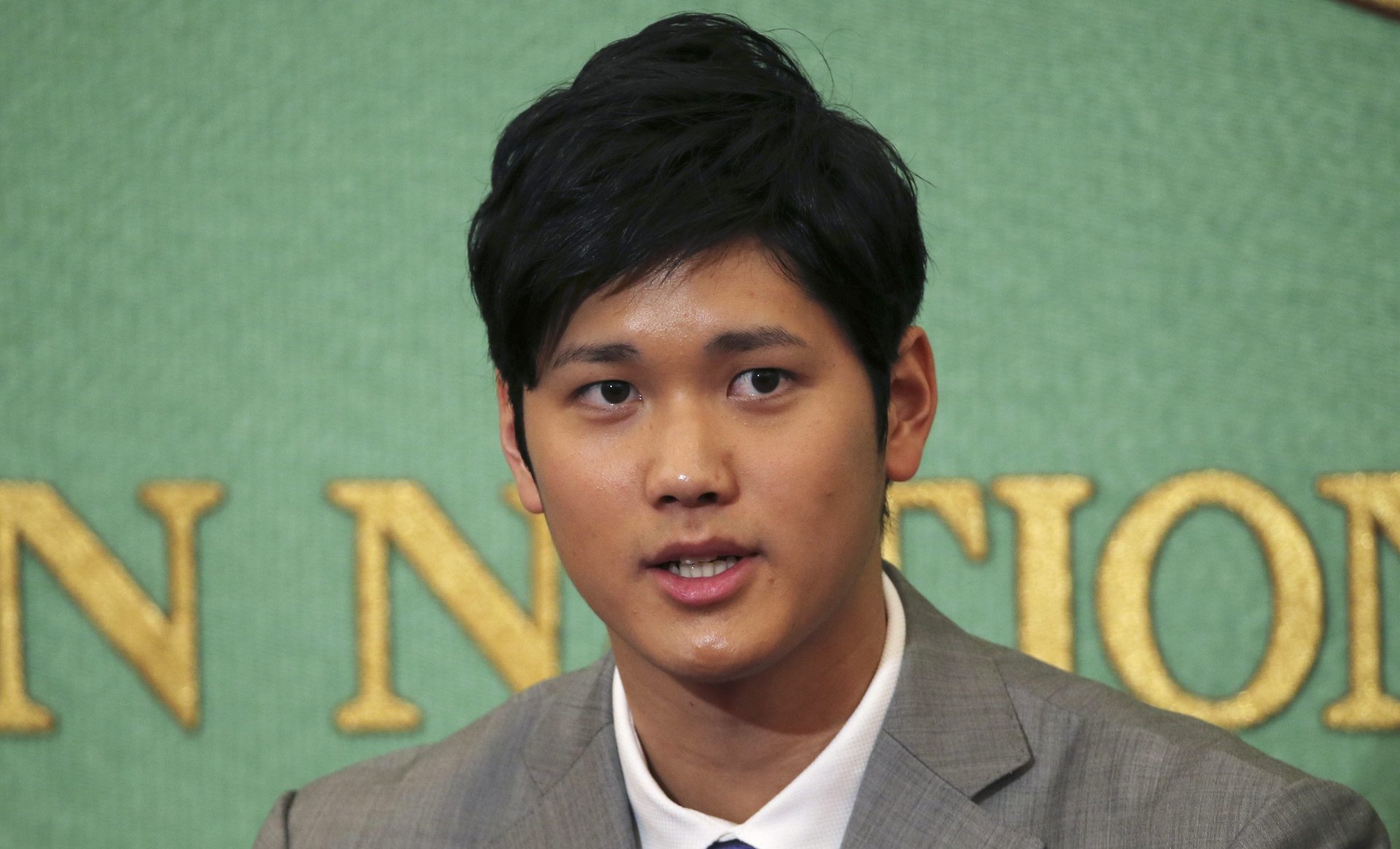Japan’s Babe Ruth is the quintessential millennial job seeker
Like a lot of 23-year-olds, Japan’s Shohei Ohtani is looking to advance his career. And like many job-seeking millennials, he’s emphasizing quality of life and growth opportunities over how much he’ll be paid.


Like a lot of 23-year-olds, Japan’s Shohei Ohtani is looking to advance his career. And like many job-seeking millennials, he’s emphasizing quality of life and growth opportunities over how much he’ll be paid.
Ohtani is a professional baseball player—a once-in-a-generation talent who excels at both pitching and batting. Those disparate skills haven’t been combined in one player at such a high level since Babe Ruth switched from ace pitcher to prodigious slugger in 1920. Ohtani has declared his interest in leaving Japanese baseball for the US next season, and all 30 major-league teams are slavering at the thought of adding him to their rosters.
But there’s a catch. Unlike auctions for other high-powered free agents—where teams compete by offering ever-higher piles of cash—Ohtani’s contract will be restricted by baseball’s arcane rules governing international signings for players under the age of 25. Instead of the $20 million a year or more he might normally command, the most he can earn next year is about $3.5 million. At that price, any team in the majors can afford him.
Since money is off the table as a deciding factor, Ohtani is using other criteria to pick his employer. According to the Associated Press, Ohtani, through his agent, sent each team a questionnaire that asks them:
“…to evaluate Ohtani’s talent as a pitcher and as a hitter; to explain its player development, medical training and player performance philosophies and facilities; to describe its minor league and spring training facilities; to detail resources for Ohtani’s cultural assimilation into the team’s city; to demonstrate a vision for how Ohtani could integrate into the team’s organization; and to tell Ohtani why the team is a desirable place to play.”
The questions reveal Ohtani’s priorities, as an athlete and as a young man about to embark on a very big adventure. It’s clear he wants to play for a team that will allow him to develop professionally, that will keep him healthy, and that will let him flourish as an immigrant in a new city.
In this, he’s not unlike other young people embarking on careers. In a survey of its 1,660 interns globally, EY—the accounting and consulting firm formerly called Ernst & Young—asked what they prioritized most in an employer. The overwhelming majority—84%—said they valued opportunities for progression and growth, followed by flexibility (59%) and social responsibility or community engagement (27%). (The interns could pick multiple answers). Only 1% said pay was a factor.
Anyone in position to secure an internship at EY will likely have other options for high-paying jobs, so it makes sense that salary isn’t a deciding factor. Likewise for Ohtani, who will be in line for a significant raise after he turns 25 in 2019. With a $200 million contract in sight if he’s successful in his first two seasons in major league baseball, emphasizing happiness and growth now makes sense.